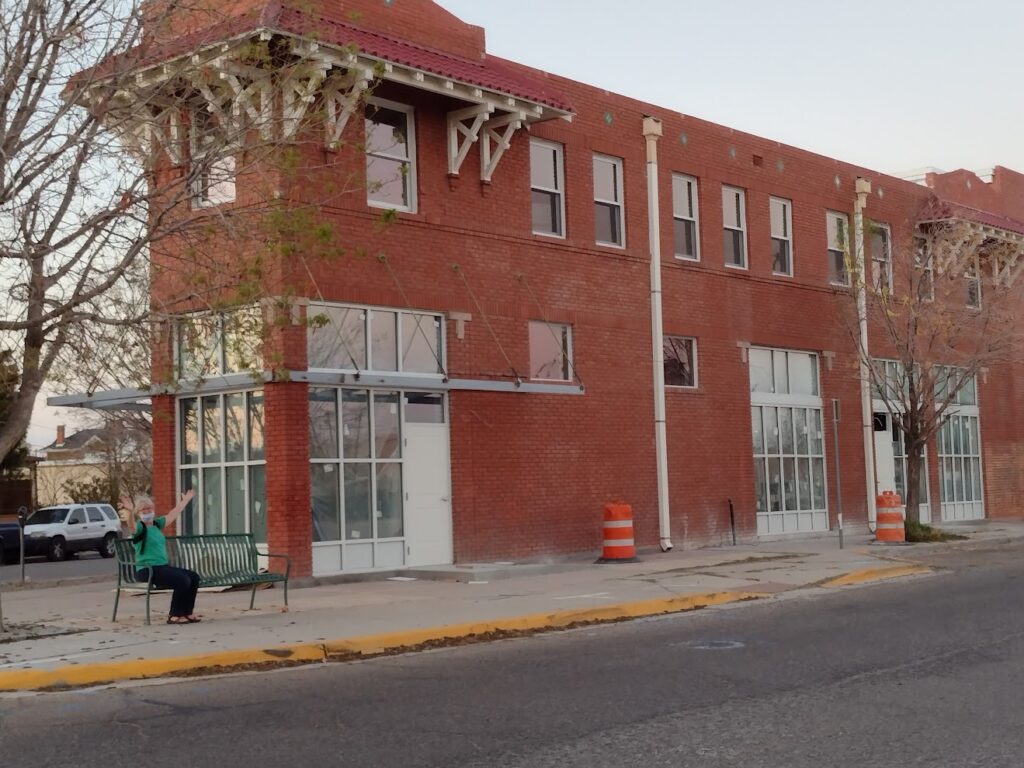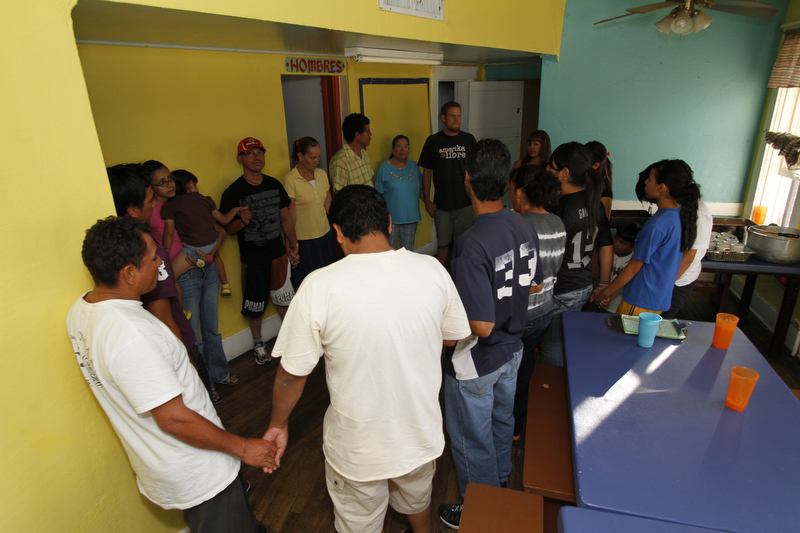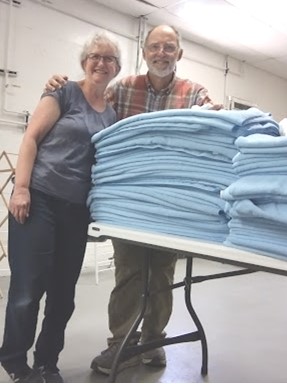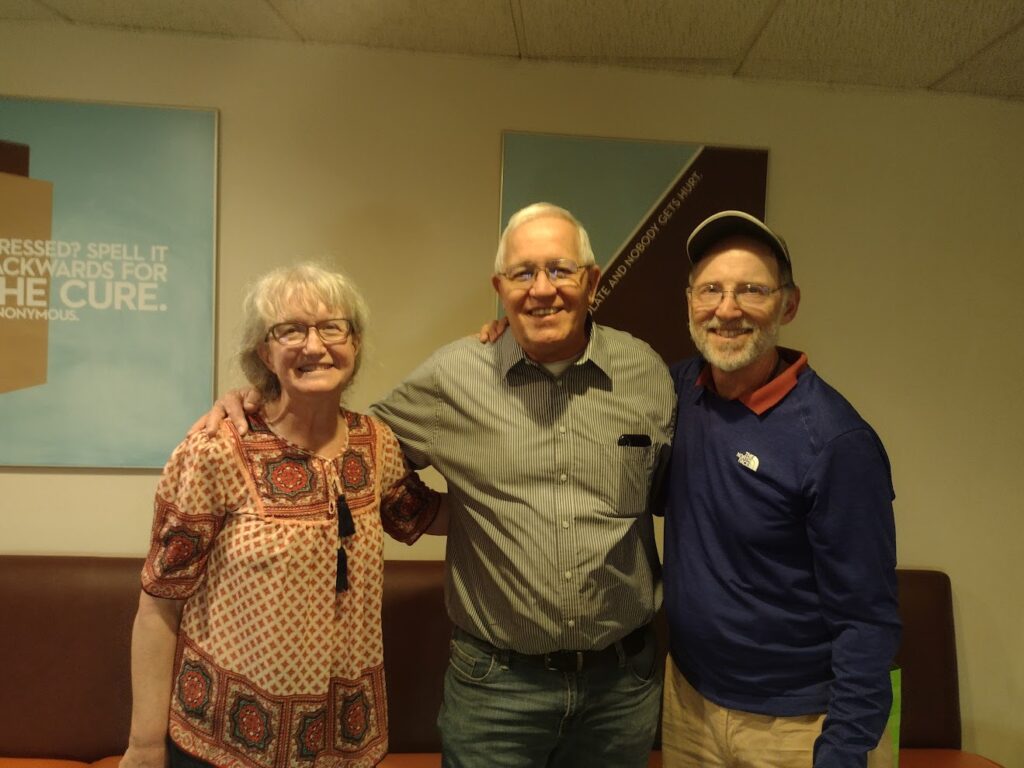We’re volunteering at Annunciation House this Summer!
By Robert Fontana
What’s Annunciation House or A-House and why are we volunteering there in El Paso, Texas, for the summer at the hottest time of the year?

In the winter of 1976, a small group of young adults first gathered to consider and discuss the possibility of undertaking a journey that would one day be known as Annunciation House. Their gathering was fostered by a desire to experience the Gospel more deeply. Especially strong was the realization that the Gospel calls us all to the poor and that the life and presence of Jesus in the Gospels is so completely in relation to the poor.
In the fall of 1977 the second floor of an old building owned by the Diocese of El Paso became vacant. With the help and blessing of then Bishop, Sidney M. Metzger, the diocese loaned the building. On February 3, 1978, five of those young adults moved into the building with no money or other resources, and only vague ideas about how the poor would be served. What was certain was that in making themselves available to the poor, the poor would show the way and do the teaching.
The beginning was difficult. After arriving it became clear that there was no real sense of who the poor were, and if a poor person were to come, there was a sense that the group would not know what to do with him or her. Fortunately for the volunteers, the building was in need of cleaning and repairs. This provided an initial agenda for the group while they waited to come to some understanding of what God was asking.
One day a call came asking the group to take in a teenager who had been living in the streets. In accepting this young man Annunciation House made the first of two basic decisions that would define the work it would do. In accepting this young man, it in effect said that Annunciation House would be a house of hospitality for the homeless poor. It was not long before a second guest was accepted, then a third, then a fourth and so on. There would come a time when there would be more than 100 guests at the house at one time.
The second basic decision about the work of the house came with the realization that in the El Paso community, there was an entire group of people who were unable to receive any of the social services that are ordinarily available to the poor.

When referred to an agency, they would return to the house saying, They say they cannot help me because “no tengo papeles,” because “I have no papers.” There was no place where the undocumented could receive such basic services as food, shelter, clothing, and medical attention. In the El Paso community the undocumented were among the poorest and the most in need. And thus the decision was made that the undocumented would be the ones whom Annunciation House would primarily serve.
And so it was that little by little the volunteers were taught about who the poor were, about welcoming them and about serving them. With time the life and work of the house evolved, as did the volunteers themselves. Some left and new ones came. There has never been but a small number of volunteers living and working in the house at any given time. So also has the work never been but a tiny effort in the face of great numbers and tremendous needs.
There is always more left to be done at the end of the day than there was when it started. There is always a never-ending flow of guests to be welcomed and assisted. There is always a new opportunity to discover the meaning of Johns words, Little children, let us love in deed and in truth and not merely talk about it. There is always a never-ending opportunity to serve and meet Christ among the poor and to little by little experience the Gospel more deeply and try to live it more fully. (from https://annunciationhouse.org/)
Why we are we volunteering at A-House?

We have a historical and emotional connection to Annunciation House. Two of our daughters, Mary and Colleen, following their graduations from college (Mary in 2004, Colleen in 2014), spent 15 months living and serving at A-House. They each had profoundly enriching experiences that shaped their futures. Mary remained involved with A-House serving as a member of the advisory board and as a volunteer in-charge of volunteer applications. Colleen, a journalist major in college, has chosen to work professionally with non-profits that serve as advocates and trainers for low income workers employed as house-cleaners, yard workers, laborers, etc. Many of these are Spanish speaking migrants.
In 2021, when Covid broke out across the country, Mary reported to us that A-House was struggling recruiting volunteers. We immediately thought, since I could continue my counseling work over telehealth from El Paso, there was no reason why we could not volunteer. We spent three weeks at an A-house shelter mostly doing laundry, mopping floors, and emptying trash. We were able to meet with one of the A-House founders and director, Ruben Garcia (pictured) below.

We are returning to A-House this summer for similar reasons. A-House is having a hard time recruiting volunteers because they are being scared off by:
Texas Attorney General Ken Paxton has sued Annunciation House, a nongovernmental organization (“NGO”), to revoke their registration to operate in Texas. The Office of the Attorney General (“OAG”) reviewed significant public record information strongly suggesting Annunciation House is engaged in legal violations such as facilitating illegal entry to the United States, alien harboring, human smuggling, and operating a stash house. (https://www.texasattorneygeneral.gov)
This is not true. Guests are brought to A-House by federal immigration officers who have processed the person’s asylum claim and given him/her paperwork allowing entry into the country until the claim can be heard at a future court date.